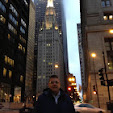In the U.S. Congress, there is still strong opposition to any easing of the isolating embargo against anti-imperialist Cuba.
A bipartisan group of United States Senators reintroduced legislation on Thursday which would repeal all remaining existing restrictions on travel to revolutionary Cuba, including for tourism which is banned under current law, Reuters reported.
A bipartisan group of United States Senators reintroduced legislation on Thursday which would repeal all remaining existing restrictions on travel to revolutionary Cuba, including for tourism which is banned under current law, Reuters reported.
The bill, called the Freedom to Travel to Cuba Act, was first introduced in 2015 by a group of eight co-sponsors, but never made it to the senate floor for a vote. The reintroduced bill has managed to garner higher support this time, with 55 co-sponsors supporting it.
"We applaud Senators Flake and Leahy for their leadership in supporting the American and Cuban people by eliminating archaic, outdated policy," said James Williams, president of the Engage Cuba group.
Republican Senator Jeff Flake, one of the senators responsible for the bill's reintroduction, emphasized that the lifting of restrictions would “help the Cuban people” by boosting Cuba's “burgeoning enterpreneureal and private sector.”
Even though 55 votes is a majority in the 100 member Senate, 60 votes are needed to advance the legislation further. It is unclear whether there is enough support among Republican leaders to allow the bill to be voted on.
Within congress there is a block of lawmakers who are strongly opposed to any easing of the ongoing embargo, which has placed economic sanctions on the communist-led Caribbean island for half a century intending to isolate and economically starve it following its anti-imperialist revolution.
The most prominent voices opposing the easing of the embargo are Cuban-American lawmakers opposed to Cuba's revolutionary leadership, notably Senator Marco Rubio who grew up in Miami and whose parents are Cuban immigrants. These senators claim that a transition to “democracy” would be a prerequisite for the normalization of relations.
The ongoing embargo was imposed by the U.S. under the leadership of former President John F. Kennedy following the island's anti-imperialist overthrow of right-wing dictator Fulgencio Batista, led by Fidel Castro who quickly declared the socialist character of the revolution.
The embargo, which banned almost all imports from the communist nation, has had a crippling effect on the Cuban economy. In the years following the collapse of the Soviet Union, Cuba's lack of major world trade partners led to a period of economic difficulty known as the “special period,” during which the island's cooperative agriculture movement developed unprecidented self-sufficiency.
In spite of difficulties resulting from the economic isolation imposed by the embargo, Cuba has made unparallelled gains in healthcare access, education, literacy, LGBT rights, and sustainability. Their teams of doctors who operate all over the world, have been internationally praised for their global service.
In 2014, former U.S. President Barack Obama initiated measures to ease certain aspects of the embargo including certain types of trade and travel. Current U.S. President Donald Trump has threatened during his campaign to reverse these measures, although to date no action has been taken by the new administration toward the ongoing embargo.
Previous easing of restrictions on trade between the U.S. and Cuba has often been limited to Cuba's private sector, allowing imports from “independent Cuban entrepreneurs,” but not with state owned enterprises. Such policies have been criticized by worker and campesino groups in Cuba as an attempt to “promote division” and separate Cuban small farmers from the socialist state.






0 comentarios:
Publicar un comentario